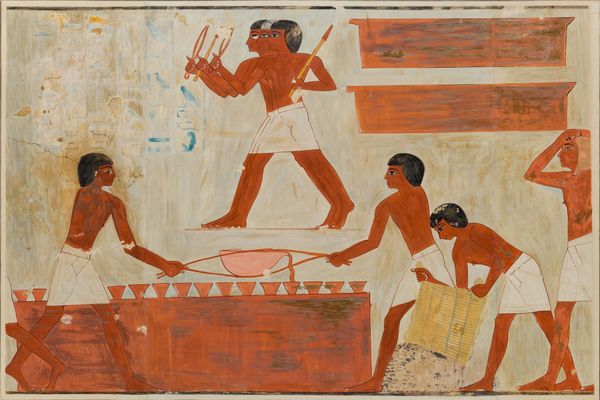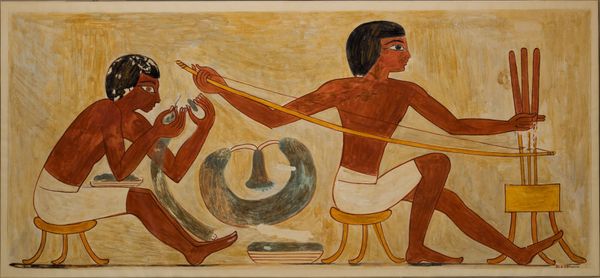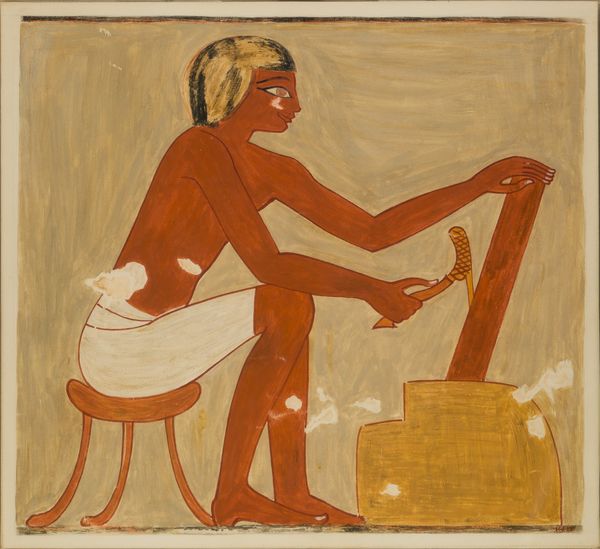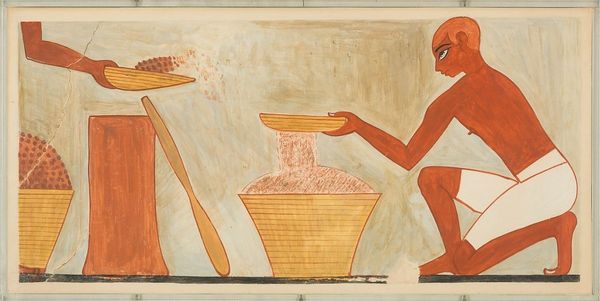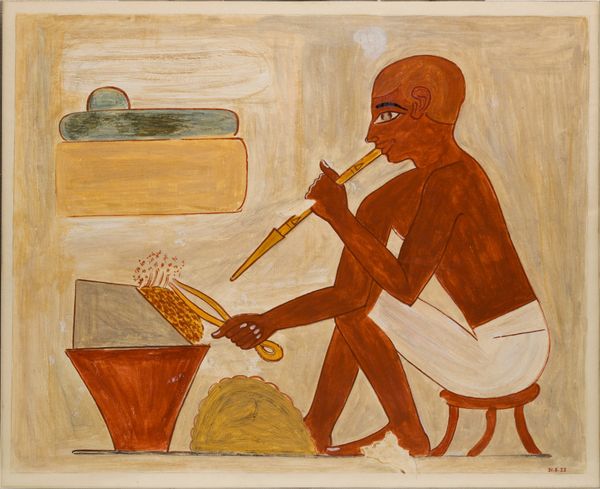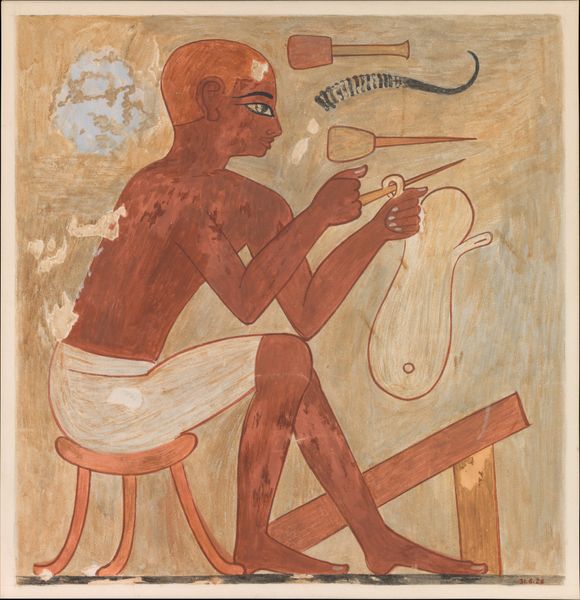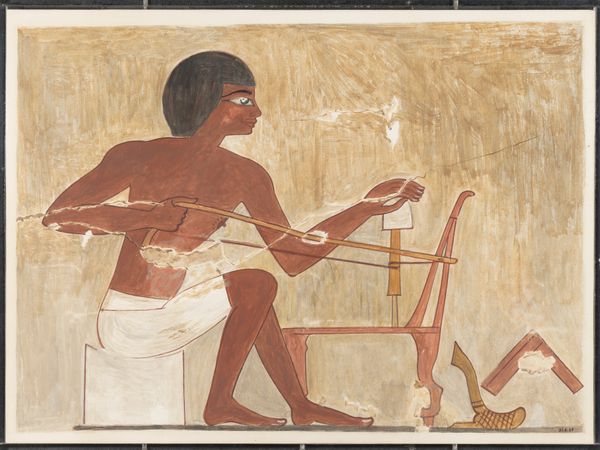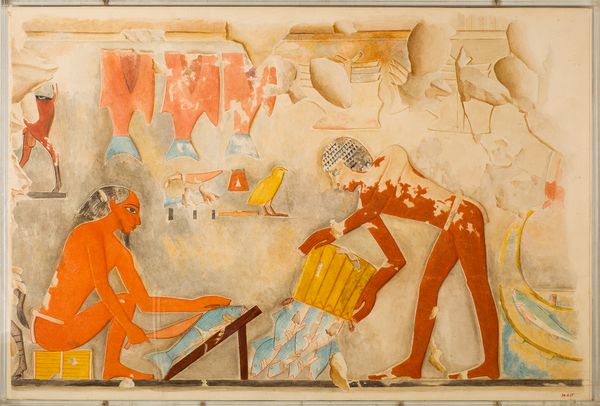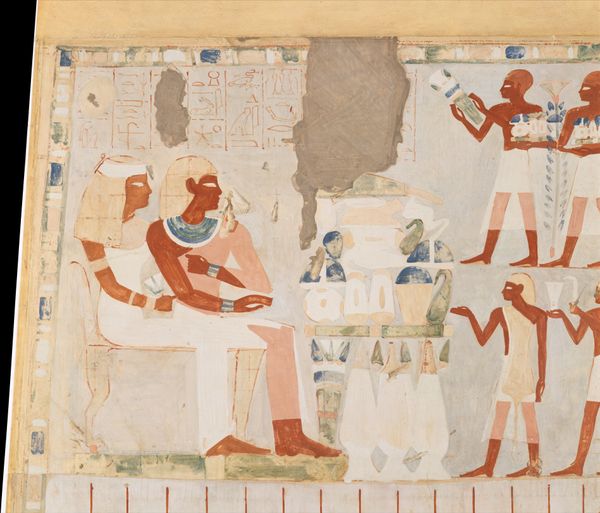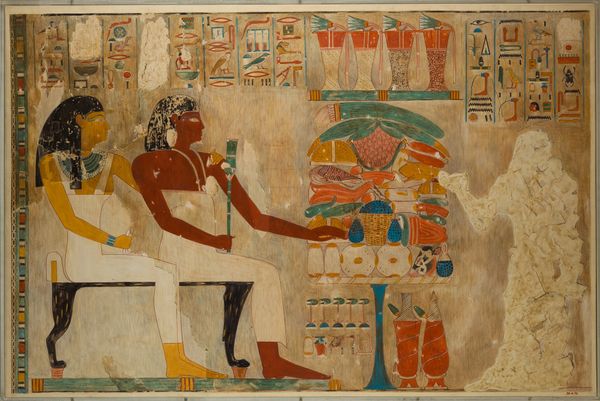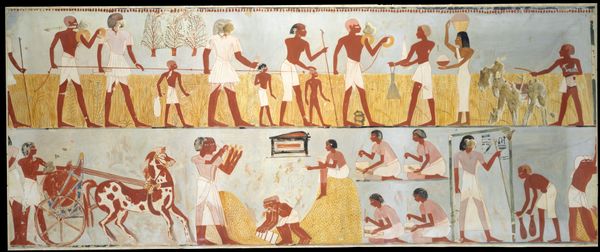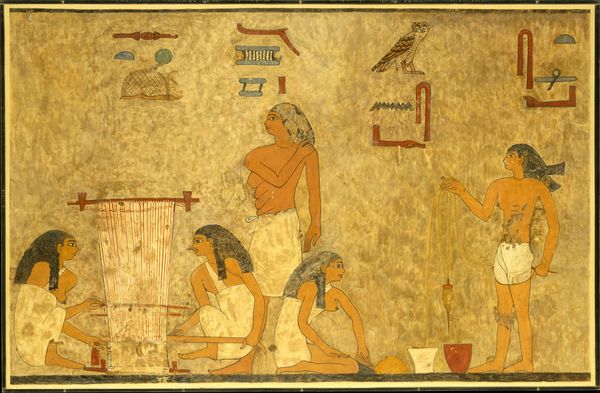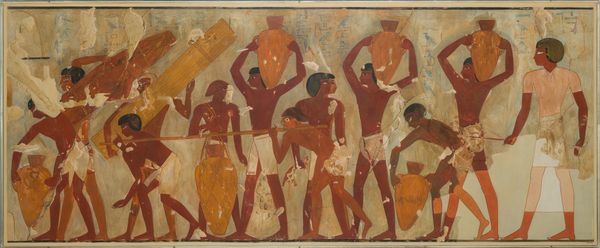
fresco
#
narrative-art
#
ancient-egyptian-art
#
figuration
#
fresco
#
ancient-mediterranean
#
genre-painting
#
history-painting
Copyright: Public domain
Editor: This is "Sandal Maker, Tomb of Rekhmire," a fresco from ancient Egypt around 1400 BC. I'm struck by how this everyday scene has been immortalized. There’s a real sense of the mundane being made monumental, don’t you think? What catches your eye when you look at this? Curator: Mundane, maybe, but also…magical. I see a man, seemingly suspended in time, diligently crafting sandals. But look closer—see how the artist uses line and color? It’s almost dreamlike. This isn't just a snapshot of daily life; it's an idealized vision, carefully constructed to convey status and permanence. What do you make of his direct gaze, the lack of depth? Editor: It feels intentional, stylized. He seems like a symbol, not just a guy making shoes. But why the focus on sandal-making? Was Rekhmire particularly fond of footwear? Curator: Ah, there's the clever part. Rekhmire was a powerful vizier. This scene, and others like it in his tomb, showcases the wealth and control he had over skilled labor. It's a claim to power, cleverly disguised as a humble workshop. Do you think that the way of depiction would be different if it was more simple people on show here? Editor: That's fascinating! It totally shifts my perspective. So, the artistry is almost a propaganda tool, highlighting not just the craft but the patron's power. I hadn't considered that aspect at all. It's no longer a calm scene, but instead full of energy. Curator: Exactly! It's a vibrant claim to power through image making, embedded in what seems, at first glance, to be everyday life. It speaks volumes about the intersection of art, power, and belief in ancient Egypt. It reminds us that the humblest scene can hold immense stories and intentions.
Comments
No comments
Be the first to comment and join the conversation on the ultimate creative platform.
